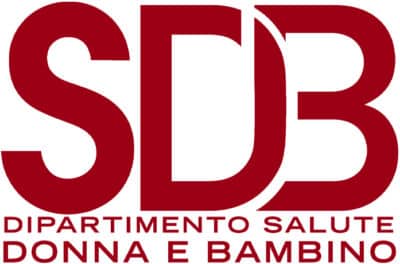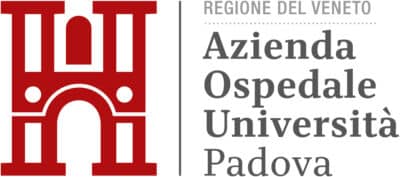

The Second-level short specialisation degree in Special Paediatrics focuses on the completion of paediatric training in specialized modern Paediatrics sectors, represented by 8 possible fields:
- Urgency Paediatrics
- Paediatric gastroenterology
- Pediatric neurology and epileptology
- Pediatric rheumatology
- Paediatric onco-haematology
- Pediatric pulmonology and allergology
- Paediatric nephrology
- Pediatric infectious diseases
The Second-level short specialisation degree in Special Paediatrics provides training, through a direct approach, on rare diseases of childhood and adolescence, with the goal of training professionals for national and international networks specializing in these pathologies (European Reference Networks – ERN).
The lessons are held in-person, and, starting from real clinical cases, they explore insights on the different specialized paediatric pathologies, including differential diagnostic, lab integration and treatment elements. There will be hands-on practice at the patient’s bedside, and direct involvement in the decision-making process on possible treatments to undertake. The program includes also seminars held by national and international experts. Traineeships will be carried out at the different wards of the Women and Child’s Heath Department, under the direct supervision of tutors selected among university professors and medical directors belonging to the Short specialisation degree’s faculty.
The educational offer also includes participation in online courses and conferences, on specific topics, according to the specialization. During the entire year of attendance, attendees will be in direct contact with their professors, and relate to them on educational and learning programs.
The Second-level short specialisation degree in Special Paediatrics is addressed to medicine and surgery graduates, preferably specialized in paediatrics, who wish to acquire competencies in specific fields, so as to work in third-level centres or spoke centres as expert interlocutors in connection with the hub.
Trained professionals can find occupational outlets in second or third level acute paediatric units or who wish to deepen specialized paediatric fields.
The activities of Short specialisation degree graduates can also develop in clinic-based settings, both intra and extra-hospital, dedicated to specialized paediatric fields. They can also become part of care and research networks, in partnership with third level centres.
The Second-level short specialisation degree in Special Paediatrics is structured in the following specializations and topics:
Urgency Paediatrics
Training of competencies to work in the Emergency Room, recognize priority emergencies and make decisions in the best interest of children and adolescents suffering from acute pathologies. It explores the approach to children in critical condition, cardiac-pulmonary resuscitation, trauma management, toxicological urgencies and procedural analgo-sedation.
Paediatric gastroenterology
Description of the diagnostic, therapeutic and follow-up peculiarity of patients with acute and chronic diseases of the gastrointestinal tract, liver, pancreas or liver transplant patients. Attendees will follow the execution and take part in the academic discussion of instrumental exams, such as imaging of the digestive tract, digestive endoscopies, elastography and hepatic biopsy.
Pediatric neurology and epileptology
Presentation of the most common neurological occurrences in children: inflammatory and infectious disorders, NCS and peripheral system trauma, vascular diseases, acute nervous central system presentation, acute complications of chronic neurological diseases, acute peripheral neuropathies, convulsions and status epilepticus.
Pediatric rheumatology
Training on theoretical-practical fundamentals for a diagnostic-therapeutic treatment of the most common rheumatic pathologies in children and adolescents, rheumatological emergencies, common and rare vasculitis and autoinflammatory diseases. Training on joint ultrasound on arthrocentesis under conscious sedation.
Paediatric onco-haematology
Training on a theoretical-practical approach to managing the most frequent tumours in children and adolescents, by participating in multidisciplinary meetings, patient’s take over, notions of molecular oncology, genetic anomalies and the role of markers to diagnose minimal residual diseases. It will include morphological analysis sessions with an optical microscope and flow cytometry sessions.
Pediatric pulmonology and allergology
Training on the fundamentals for a diagnostic-therapeutic approach to acute and chronic respiratory failure, severe asthma, atopic dermatitis and acute and chronic rashes, allergic rhinitis with approach to rhinoscopy, food allergies, execution and correct interpretation of prick tests, stress testing and pulmonary function tests, oral challenge tests with food or drugs.
Paediatric nephrology
Theoretical-practical training on acute and chronic renal failure, autoimmune and vasculitic glomerular pathologies, nephrosis, nephrological and rare nephrological pathologies. Training on eco-guided renal biopsy indications and execution, and anatomical-clinical sessions with case presentation.
Pediatric infectious diseases
Training on specific competencies to manage infections in children and adolescents, in immunocompetent patients and in those affected by primary or acquired immunodeficiency. It will focus on the management of emerging (multi-resistant bacteria) infectious pathologies, vaccinations, and the correct use of antibiotics.
There is no better way to learn than to teach something.
An important element of this Short specialisation degree is represented by the teaching activities within the speciality group of the attendees. During attendance, attendees are required to present clinical cases or literature updates to their group of colleagues. This – with the help of a tutor – helps them master topics that are new to them in the paediatric sector, with the opportunity to train their analytical capacities in collecting the best scientific articles for the scope, their critical analysis capacities in reviewing the literature, and their communication skills during the presentation, by presenting the message in a simple, coincide and complete manner.
This educational exercise, apart from cultural enrichment purposes, helps to bring this updating method also to the centres where attendees will work after the Short specialisation degree, thus promoting this teaching helps learning approach in other realities.
This is the Short specialisation degree’s main motto. Attendees will have the chance to learn and practice essential procedures for the diagnostic-therapeutic process of complex paediatric patients or with rare diseases first-hand.
Examples include: execution of an arthrocentesis under conscious sedation in rheumatology; a lumbar puncture in neurology; a bone marrow aspirate in onco-haematology; a spirometry and its interpretation in pneumoallergology; an hepatic elastometry or a 24 h oesophageal impedance pH monitoring; a resuscitation intervention with a multidisciplinary team in urgency paediatrics; or a renal biopsy with its interpretation in nephrology.
These are unique hands-on education opportunities, which can be hard to find in other contexts. The consequences of this hands-on approach can be easily guessed, and they are the Short specialisation degree’s characterizing aspect.
Being placed in a Multidisciplinary Paediatric Department, the Short specialisation degree involves attendees in all Department initiatives.
It includes meetings, conventions, and other initiatives involving national and international experts in several disciplines, with the chance for attendees to participate. This reflects the Short specialisation degree’s philosophy, open to clinical research.
The course also offers participants the most recent acquisitions in the clinical research sector, with particular reference to the execution of clinical trials, observational or case-control studies entailing biostatistics notions, drafting of research protocols, critical literature evaluation. And it also includes scoping review, that is the process of reviewing the evidence in literature on a certain topic that may stimulate further research, experimental and innovative projects in the clinical field.
Short specialisation degree attendees will have the chance to undertake a research path that, starting from concrete clinical cases experienced during the Short specialisation degree or other unmet needs, will allow them to develop a research project, ending with the drafting of the final Short specialisation degree dissertation, and a possible scientific publication.
The general ranking of merit for the academic year 2025/26 will be published on the Italian page of this Second-level short specialisation degree according to the timing provided in the Call.
The date and place of the oral exam of Master PEDS will be indicated here.
Information
FAQ
The Second-level short specialisation degree in Special Paediatrics requires good basic paediatrics knowledge for a proficient execution. Therefore, with equal qualifications, precedence will be given to Paediatrics specialists, followed by specialized in single disciplines (specialization in nephrology for the paediatric nephrology module, specialization in rheumatology for the paediatric rheumatology module, etc.), followed by Medicine and Surgery graduates.
Short specialisation degree attendees, after a few theoretical-practical training lessons, with the help of a tutor, can execute invasive procedures to test their practical and technical skills. The tutor’s supervision and the settings (in conscious sedation and in specifically assigned environments) ensures that the procedure is done in a calm, reasoned and technically suitable way.
Total attendance includes 10 weeks, for a total of 50 actual days. Justified absences cannot exceed 10% of the total (5 days).
Short specialisation degree attendees, supported by a tutor acting as correlator, will draft a dissertation, which may include a case report, a literature review study, or a pilot study with proof of concept purposes, which will be presented during the final Short specialisation degree exam. The final oral exam will consist of the discussion of a dissertation, with the purpose of testing the analytical and critical capacities of the Short specialisation degree’s attendees in tackling clinical research topics.
Certainly! The 10 month attendance helps attendees to get familiar with the relevant Centre’s features, the specific interests and the professional characteristics of the specialists working in the Centres, the potentialities in terms of update and research opportunities of the Centre; therefore it is possible, and perhaps even desirable, that the Short specialisation degree attendees continue to keep in touch with the Short specialisation degree specialists, even after concluding the course.

